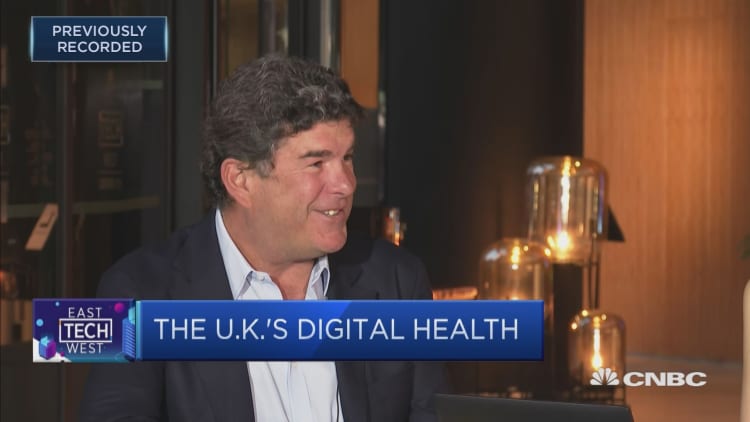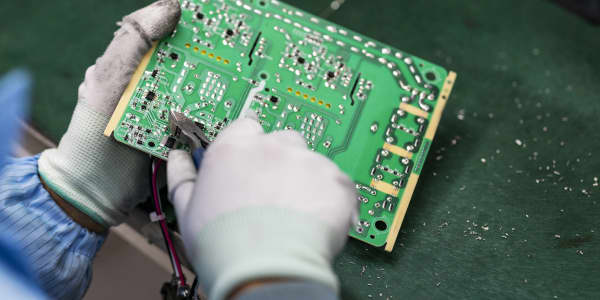
Artificial Intelligence (AI) is helping oncologists in the U.K. detect ovarian cancer in patients much earlier than was previously possible, according to the CEO of TPP, a company that provides health-care related software to doctors and nurses.
"So, our AI can now spot (ovarian cancer) in more than 50% of cases up to two years before the doctor," Frank Hester told CNBC's Christine Tan at the East Tech West conference in the Nansha district of Guangzhou, China. "The average doctor in a 40-year career sees four or five cases of ovarian cancer."
By the time a woman finds out she has ovarian cancer, it is usually too late, but late detection can now be eliminated thanks to advancement in health care technology, according to Hester, whose company works with the U.K.'s National Health Service (NHS) which provides majority of health care in England.
TPP has access to more than 50 million medical records of NHS patients. Using that data, the company has built AI programs and the first of it focuses on early detection of ovarian cancer, Hester said.
The Horsforth-based company shares patients' medical records electronically with doctors and nurses, Hester said, highlighting that they have checks and balances in place to cover for cyber security breaches.
"We pay companies to attack us every year. We actually pay... in every country that we're working in," Hester said, referring to ethical hackers — sometimes called "white hats" — who are hired by companies to help boost their defenses against hackers and keep their networks secure.
Countries around the world are relying on digital medical records of patients and using AI in health care for early detection and accuracy of diagnosis, or for administrative tasks such as scheduling patients appointments and staffing tasks, according to a global study done in Singapore by Royal Philips' annual Future Health Index.
According to the study, health care professionals in China are significantly more likely to recommend patients use digital health technology or mobile health apps to track key health indicators.
"China is absolutely leading the world in AI," said Hester. "I've seen a change over the past 5 years... it's almost the policy now to do business with foreigners, which is great," Hester said.
TPP's health care technology has been used in China since 2013, he added.




